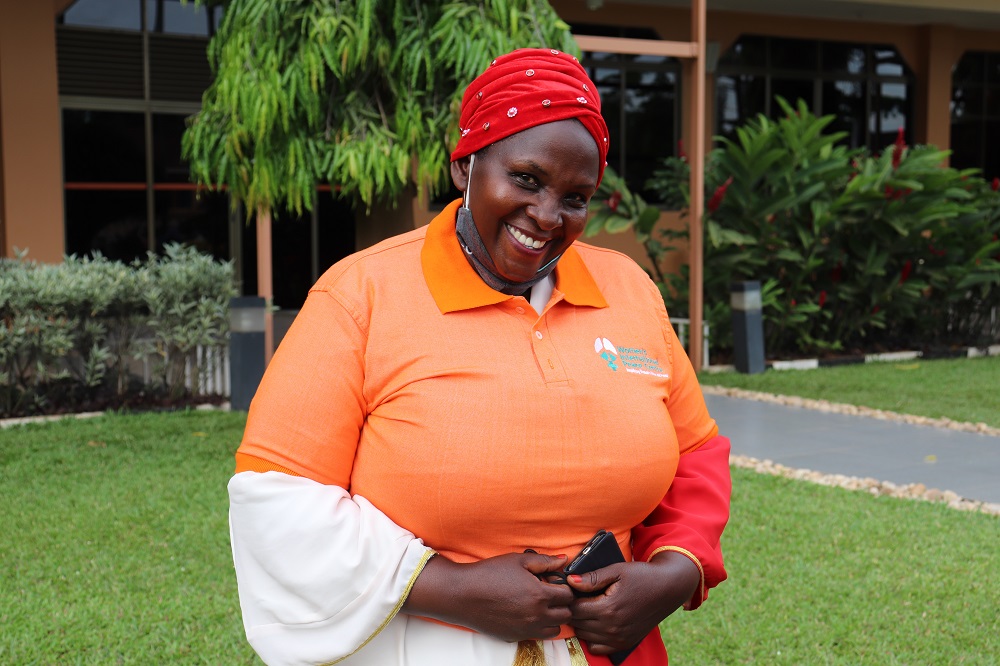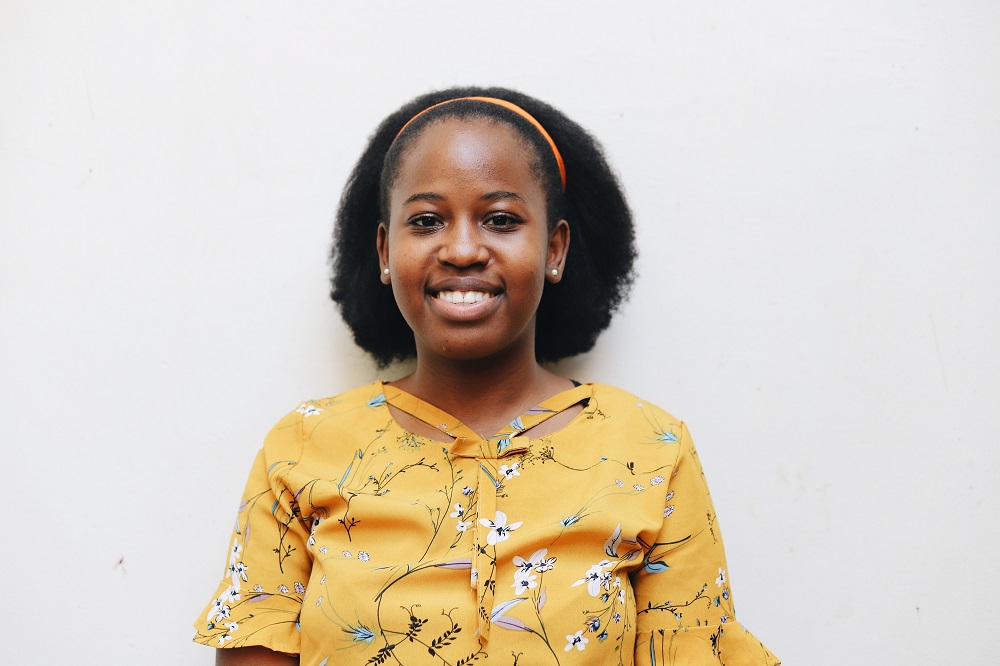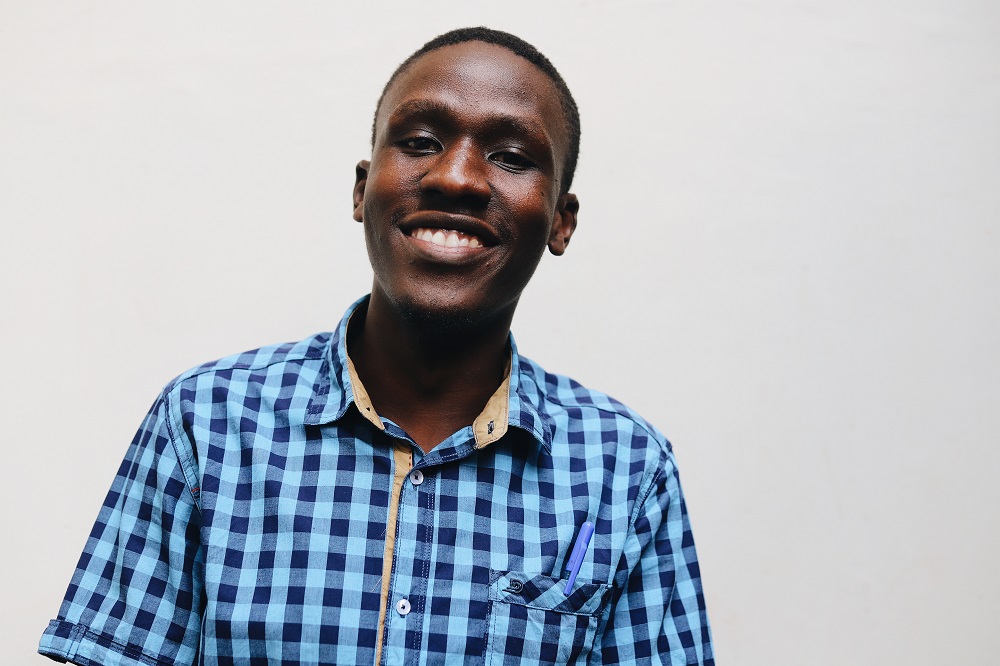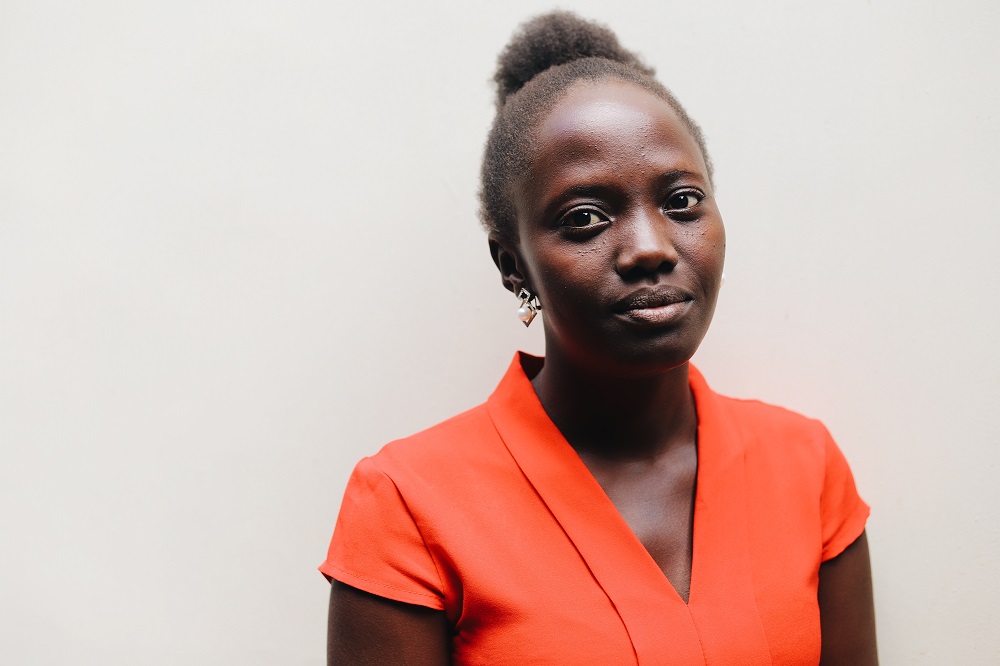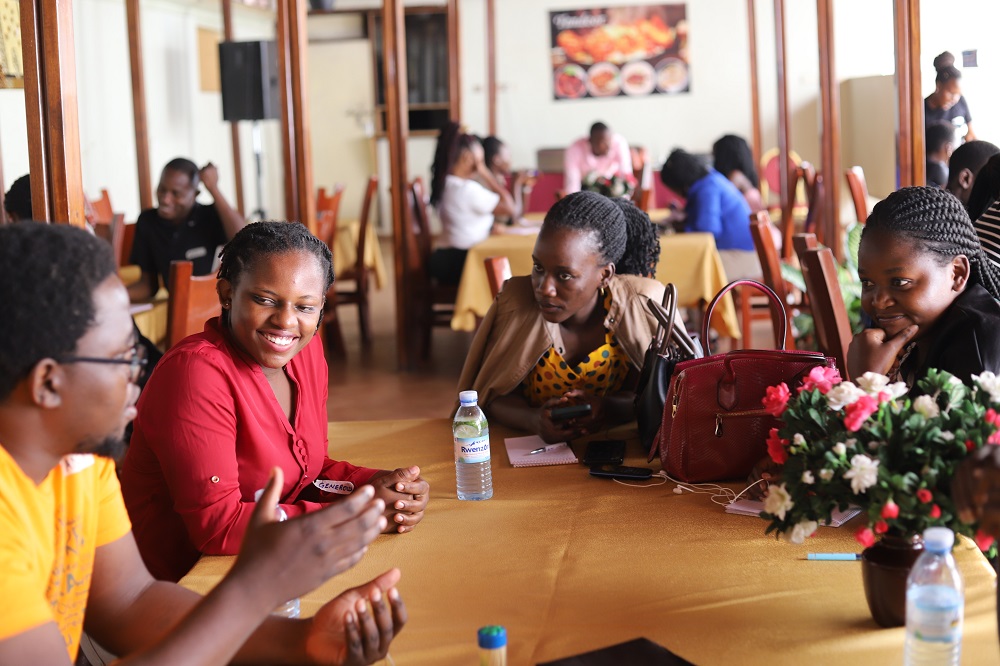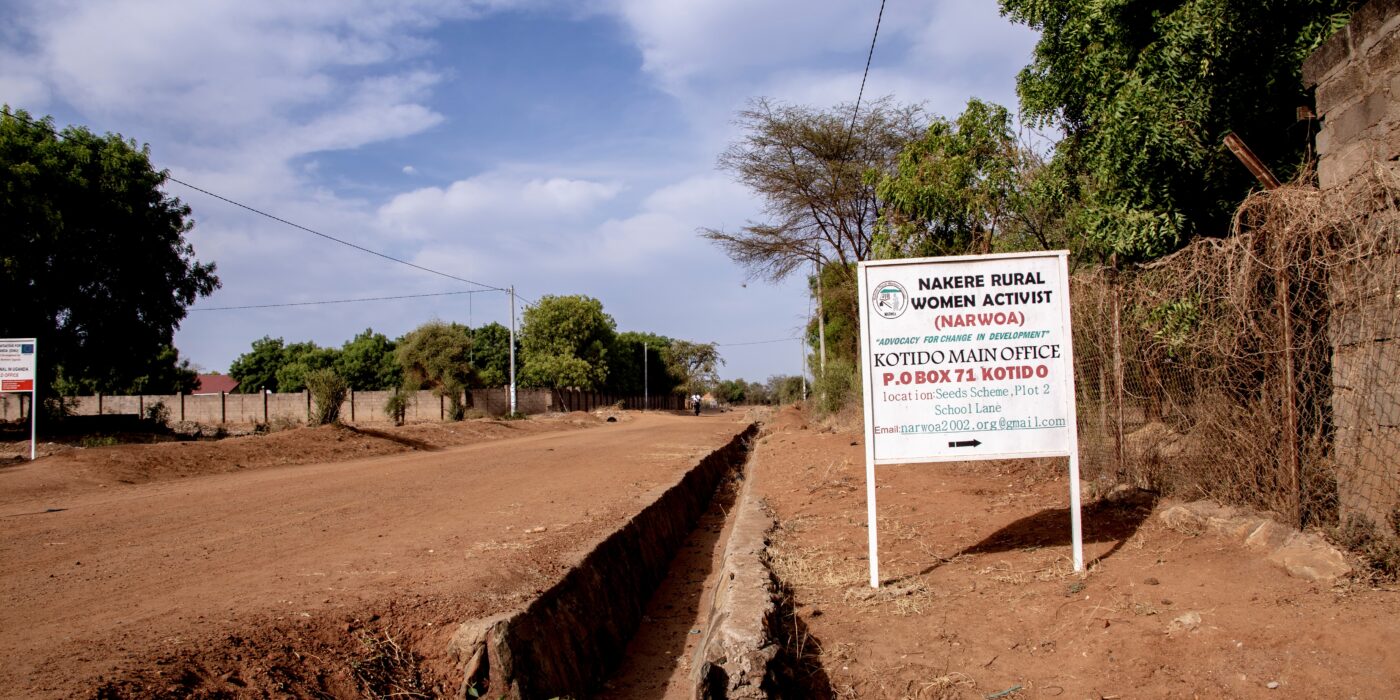In January 2022, The Peace Centre trained 30 young urban refugees living in Uganda from Burundi, DRC, Rwanda, Somalia, Sudan and South Sudan on leadership and peacebuilding. The training aimed to promote young urban refugee women and GBV survivors’ leadership in peace-building processes by equipping them with skills and knowledge to fully understand the policy frameworks, design messages, identify opportunities for influencing and plan the next steps in their advocacy.
The following are documented stories of some of the participants of the training and how they have been impacted over time. Here they also share experiences and challenges regarding settling in Uganda. All names used in these stories are pseudonyms.
SALMA
I am the Director of ‘Stand Up and Shine Foundation’, an initiative established to help refugees in my community. As a source of income, I operate a bakery and a tailoring shop. In my community, there have been multiple cases of gender-based violence some of which get to be reported and others that never make it to the light. These to mention but a few include; employers abusing their employees, stepfathers raping their stepdaughters and mothers forcing their children into prostitution in order to secure some income for the family.
On multiple occasions, I have had to intervene in these cases by reporting them to village leaders as well as the Police. However, without much reliance on the police that ‘continues to fail us, I offer counselling and guidance to girls and young women refugees that have been victims of societal vices like gender-based violence. Similarly, I offer training in tailoring and baking skills to these victim girls and young women to help them get their lives back on track.
As a result of the peacebuilding training, I am more informed of my rights as a refugee- what is acceptable and non-acceptable to me, how I can participate in decision-making as a woman and I am more aware of the different ways to defend myself. With this, therefore, I have gone ahead to train other fellow refugees on how to foster peace in their homes and the community at large.
Also, as part of my training lessons, I have mastered the skill of looking for opportunities to better myself in all spheres of life. This has been very instrumental to the growth of my business as I wake every morning with a vision of meeting new people and finding new opportunities.
I hope to see my community change for the better. I desire an establishment of a major training Centre where refugees can be trained in various skills such as English, computer and social skills, baking, cooking and many more that can help them live a decent life even while in a foreign country.
JEANNE
“I had suicidal thoughts at a certain point of my life but that well-being session made me look at life differently thereafter.” Jeanne is a 40 yr old Congolese refugee leader in Kitebi, an area she has been living in for the last 12 yrs since she arrived in Uganda.
Upon learning about mental wellness in the training, I was encouraged to embrace my life as one that is precious and needs to be taken care of. I was also encouraged to stay true to myself, keep positive and be hopeful in all situations.
Today, I am very passionate about mental wellness seeing that many refugees suffer from a lot of stress-related issues but have no knowledge of how to deal with them. I have made it my sole responsibility to sensitize people about taking care of their mental health in my community.
I have since embraced writing as a form of therapy helping me deal with unresolved feelings in my heart rather than bottling them up within. This has helped me remain strong even in the most difficult situations.
Through the writing process, I also encourage my fellow refugees to write down their experiences. ‘This has helped them express their feelings. Above all, I encourage them to be grateful for having Life because with the life they have hope for a better future.
I have also engaged with refugees in some of the settlements where I was taken to work as a volunteer, at the hospital.
I take a keen interest in interacting with women and girls who are victims of gender-based violence in the community. I help them look at life as an always-changing process with both good and bad things happening but one ought to be open-minded at all times.
In cases of rape or defilement, I mobilize colleagues to help victim girls by seeking medical attention from health centres as well as carrying out check-ups, the survivors are introduced to pep treatment while it’s still early and then we report the cases to the persons responsible especially village leaders and Police.
The latter however hasn’t yielded much success as they are not many refugee cases reported in the community that are taken seriously.
I reported a case of a 16-year-old girl that was defiled and became pregnant. Upon giving birth, she was denied a birth certificate from the hospital because of failure to provide evidence for the identity of the baby’s father. When the case was reported to the Police, no help was rendered to the young lady to date.
According to Jeanne, many refugees’ needs are neglected in the communities they live in which makes it harder for them to heal from the trauma of war they faced in their home countries.
“I want to see that my people can sustain themselves, that they have hope to eat, sleep peacefully, can be able to go to hospital and be attended to.”- Jeanne said, “this is the only way I will be fully content as a leader”.
EBONY
Ebony is a Congolese refugee leader heading a saving group for refugees in Najjanankumbi. According to her, this group was formed with an aim of ‘chasing’ poverty amongst refugees so they can all have a better chance at life.
Through the Peace Centre training, Ebony has since become an effective leader in her community; She has learnt how to deal with people, especially when addressing community problems.
For instance, in cases of domestic violence, she mobilizes committee leaders of the group to collect money to buy foodstuffs, sugar, soap, and other home utilities that they carry to the victims’ homes to help settle the matter. With this, they then go ahead to advise the couple against domestic violence and its dangers.
However, due to COVID-19, there have been spiralled numbers of teenage pregnancies and domestic violence cases in the community. These have unfortunately slowed down the response rate of individuals in addressing these matters. Ebony associates these escalated problems with the high poverty levels of people to the point where husbands now beat their wives over very small matters.
“Hunger is making people do what they are not supposed to do; people end up fighting when they are hungry and everything annoys them.”
Through her savings program, Ebony was able to open a mini supermarket as a source of income to sustain her family. In return, she was able to help other refugees with relief, especially in form of food for those that were in desperate need of help.
Regrettably, the supermarket has been closed down due to the failure of paying up the accumulated rent dues that were a result of the Covid-19 Lockdown.
‘It hasn’t been easy since,’ She said, as most members of the group don’t attend meetings anymore. ‘There’s nothing in it for them so they would rather go look for food elsewhere to feed their families.’
Among many things, Ebony is grateful for the training session on wellness as she is using the skills acquired to withstand stress and keep sane even in the hardest of times. She maintains strong courage with the hope that things will get better soon.
She continues to encourage girls and young women that are victims of gender-based violence to keep holding on and not give up while assisting them in any way she’s able to.
Ebony believes that with the necessary assistance, refugees can be able to put their skills and creativity to proper use. That is to say; when they are trained, they should be supported a step further with capital to get their businesses running. Otherwise, without support like that, most of them end up failing to even start.


